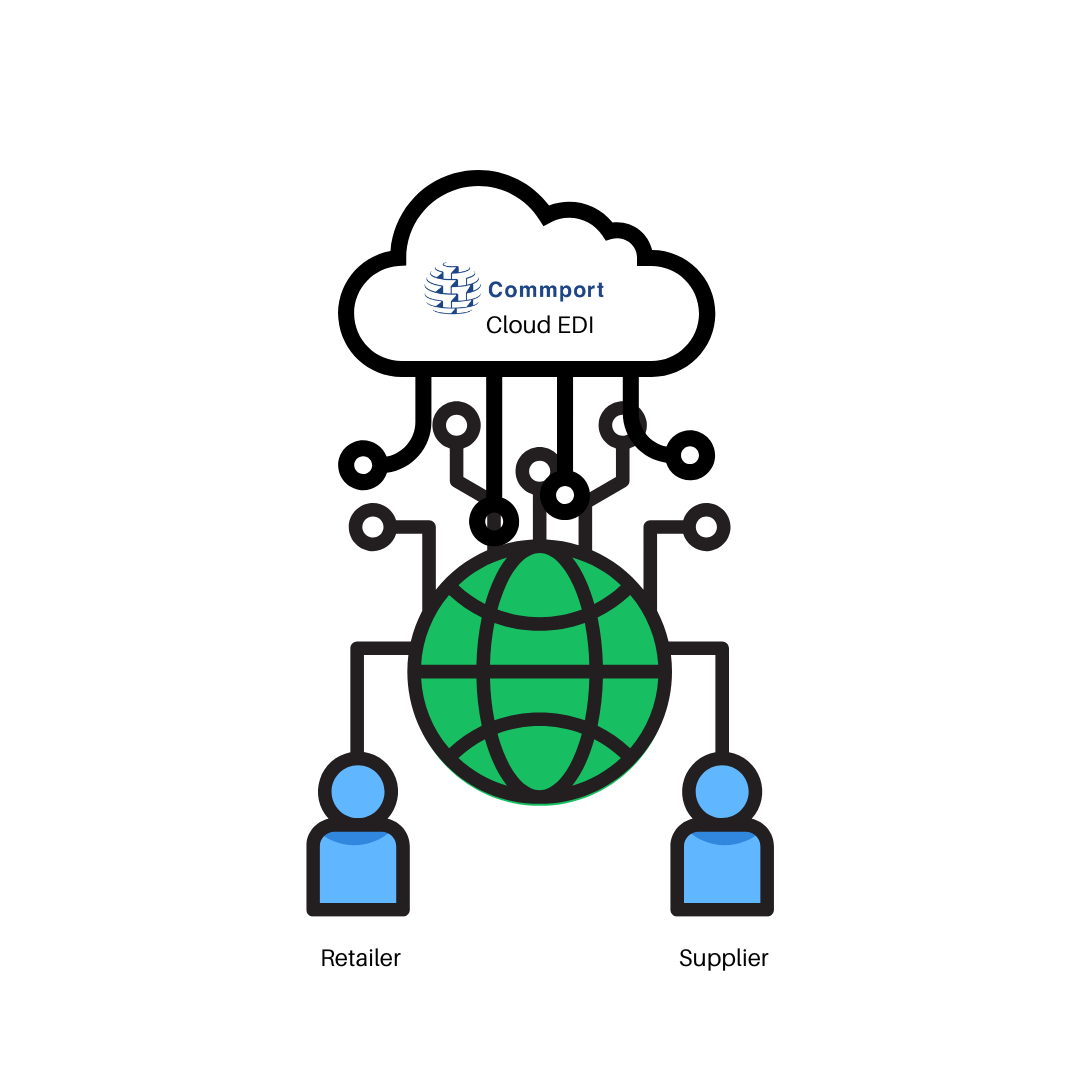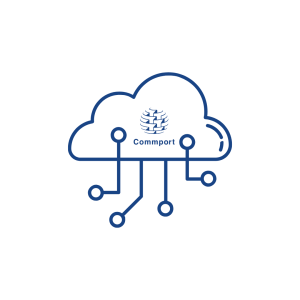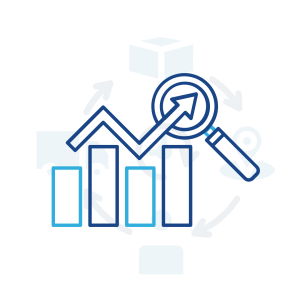Introduction
Businesses no longer rely on legacy systems to transmit EDI data; they now seek agile, secure, and integrated modern EDI solutions that connect their entire digital ecosystem. As global trade accelerates and supply chains become more interconnected, organizations must choose an EDI provider that not only supports compliance and automation but also enables scalability, intelligence, and real-time visibility.
Key Takeaways
- Modern EDI is about intelligence, not just automation: It integrates data, systems, and partners into a cohesive, real-time ecosystem that drives smarter business decisions.
- Scalability defines the future of EDI.: Whether onboarding new partners or adapting to regulatory changes, a flexible architecture ensures resilience.
- Security is foundational: Data integrity and compliance are central pillars that build trust across trading networks.
- AI and analytics are game changers: They transform EDI from transactional processing into strategic intelligence.
- Your EDI provider is a long-term partner: The right EDI provider doesn’t just deliver technology, it empowers your business to grow and thrive.
Why Choosing the Right EDI Provider Matters
Selecting the right EDI service provider is a strategic business decision, not just an IT choice. A robust EDI partner can mean the difference between operational excellence and costly disruption.
Here’s why it matters:
- Seamless Collaboration: Smooth data flow across your supply chain reduces bottlenecks and ensures every stakeholder, from suppliers to customers, operates on the same page.
- Scalability: A good EDI solution grows with your business, accommodating new partners, regions, and compliance requirements effortlessly.
- Compliance Assurance: Leading providers ensure your EDI transactions meet global standards such as ANSI X12, EDIFACT, and more.
- Business Continuity: With built-in redundancy and disaster recovery, EDI downtime becomes a thing of the past.
Ultimately, the right provider transforms your B2B transactions into a strategic asset, streamlining operations while strengthening business relationships.
The Top 10 Features of a Modern EDI Solution Provider
- Cloud-Based Architecture
- End-to-End Integration
- Multi-Protocol Support
- Advanced EDI Mapping and Translation
- Automated EDI Monitoring and Reporting
- Security and Compliance by Design
- Scalability and Flexibility
- Self-Service Portals and Partner Management
- AI-Driven Analytics and Insights
- Exceptional Customer Support and Managed Services
1. Cloud-Based Architecture
Cloud-based EDI is now the industry standard, providing businesses with flexibility, accessibility, and cost efficiency.
Unlike on-premises systems, cloud EDI solutions offer instant scalability and eliminate infrastructure maintenance costs.
With real-time data access, companies can manage trading partner communications from anywhere, crucial for today’s remote and distributed workforces.
2. End-to-End Integration
A modern EDI solution should integrate seamlessly with your ERP (like SAP, NetSuite, or Microsoft Dynamics), CRM, and supply chain management tools.
This ensures that EDI data flows directly into your core business systems without manual intervention.
Seamless integration reduces data duplication, enhances transaction accuracy, and shortens order-to-cash cycles key to maintaining competitive advantage.
3. Multi-Protocol Support
Modern EDI providers must support multiple communication protocols and protocols, including AS2, FTP/SFTP, VAN, API, and web services.
This ensures smooth data exchange with diverse trading partners using different systems and technologies.
Flexibility in protocol supports future-proofing your operations as global trading standards evolve.
4. Advanced EDI Mapping and Translation
Data translation is the heart of EDI. A modern EDI platform must support complex mapping across different formats such as X12, EDIFACT, XML, and JSON.
With built-in mapping tools, you can easily configure or modify document structures to align with specific partner requirements.
Automated EDI data mapping & translation eliminates manual rework and ensures accuracy in every transaction.
5. Automated EDI Monitoring and Reporting
Visibility is critical for supply chain managers. Modern EDI solutions include real-time transaction monitoring, proactive alerts, and detailed dashboards that help you track every document’s journey from transmission to acknowledgment.
Automation-driven reporting allows quick detection of errors, failed transactions, or SLA breaches, saving time and minimizing disruption.
Leading providers like Commport Communications include built-in EDI monitoring tools that give users end-to-end visibility into their EDI lifecycle with automated notifications and custom EDI reporting.
6. Security and Compliance by Design
With data breaches on the rise, security is non-negotiable. Modern EDI technology employs robust encryption, digital signatures, and secure protocols to safeguard sensitive business data.
7. Scalability and Flexibility
Your EDI environment must adapt to evolving business needs.
Whether you’re onboarding a new trading partner, expanding into new markets, or handling seasonal transaction spikes, a scalable EDI system accommodates it all effortlessly.
Cloud-based scalability allows organizations to add new connections and document types without re-engineering the entire system, keeping operations agile and future-ready.
8. Self-Service Portals and Partner Management
Some of the top EDI providers, like Commport ED, now offer self-service portals where partners can access documents, view transaction statuses, and troubleshoot minor issues independently. This feature reduces IT dependency and accelerates onboarding.
Effective partner management tools allow businesses to manage hundreds of trading relationships effortlessly, ensuring collaboration and transparency.
9. AI-Driven Analytics and Insights
Modern EDI isn’t just transactional, it’s intelligent. Advanced platforms leverage AI and analytics to identify transaction trends, predict supply chain risks, and improve business decision-making.
Predictive insights from EDI data help companies identify delays, optimize inventory, and strengthen supplier relationships, turning EDI from a back-office function into a strategic intelligence hub.
10. Exceptional Customer Support and Managed Services
Even the best EDI systems require expert guidance. Top-tier providers offer 24/7 customer support, managed services, and dedicated onboarding teams to ensure smooth implementation and ongoing optimization.
With managed EDI services, businesses can offload daily monitoring, maintenance, and troubleshooting, allowing teams to focus on core strategic initiatives rather than technical complexities.
Commport EDI Solutions - Modern EDI Solutions
Need Help? Download: Commport's EDI Buyers Guide
Unlock the full potential of your supply chain with our comprehensive EDI Buyer's Guide — your first step towards seamless, efficient, and error-free transactions
Frequently Asked Questions
For small businesses, the ideal EDI provider balances affordability, ease of use, and scalability. Providers like Commport Communications, offer solutions that don’t require heavy IT infrastructure while still supporting key EDI standards like X12 and EDIFACT. These platforms typically provide intuitive user interfaces, cloud deployment options, and pre-configured templates for common transactions such as purchase orders, invoices, and shipping notices, making it easier for small teams to manage without extensive technical expertise.
Fast onboarding depends on provider support, pre-built integrations, and automation tools. Cloud-based EDI providers, such as Commport Cloud EDI, can often onboard new trading partners within days instead of weeks. Features that speed onboarding include automated mapping of documents, template libraries for common transactions, and integrated testing tools that allow real-time validation of data exchanges before going live.
Strong customer support is essential for smooth EDI operations. Providers like Commport Communications are known for offering dedicated onboarding teams, 24/7 monitoring, and proactive troubleshooting. Many include SLA-backed support, ensuring timely resolution of issues, and provide training resources, knowledge bases, and direct technical assistance to minimize downtime and errors.
Cloud-based EDI platforms with scalable pricing are ideal for businesses that need flexibility as transaction volumes grow. Providers like Commport Cloud EDI offer subscription-based pricing models where businesses pay for the number of transactions or users rather than expensive on-premise infrastructure. This approach allows businesses to scale operations without major upfront investments and provides access to automatic updates, enhanced security, and remote accessibility.
Retail supply chains require specialized EDI solutions for inventory management, order fulfillment, and vendor collaboration. Commport Communications provide tailored retail EDI services that support retailers’ specific transaction sets, such as 850 (purchase orders), 856 (advance ship notices), and 810 (invoices). These providers also integrate seamlessly with POS, ERP, and warehouse management systems, ensuring synchronized data across the supply chain.
Many EDI providers offer ERP-specific integrations to ensure seamless data flow. Providers like Commport Integrated EDI support popular ERP platforms, including SAP, Oracle, Microsoft Dynamics, and NetSuite. Their solutions often include pre-built connectors or APIs, enabling automated transmission of orders, invoices, shipping notices, and inventory updates directly between the ERP and trading partners without manual intervention.
Real-time visibility into EDI transactions helps businesses respond quickly to errors or delays. Providers such as Commport EDI offer dashboards and analytics that track document status, confirmations, and acknowledgments in real time. Alerts and notifications can be configured for failed transmissions or delayed acknowledgments, ensuring prompt corrective actions and uninterrupted supply chain operations.
Managed EDI services with continuous monitoring are available from providers like Commport Communications. These services include end-to-end EDI management, from document translation and transmission to compliance checks, along with 24/7 monitoring to detect and resolve errors instantly. Managed services are especially beneficial for businesses with multiple trading partners or high transaction volumes.
A versatile EDI provider supports various communication protocols to accommodate trading partners’ preferences. Commport EDI offer support for AS2, FTP, SFTP, VAN, HTTP/S, and API-based integrations. This flexibility ensures smooth communication with partners regardless of their preferred transmission method, reducing transaction errors and connectivity issues.
Automated invoice processing through EDI reduces manual errors and accelerates payment cycles. Top platforms include Commport EDI, which support automated 810 (invoice) transactions, integrate with ERP and accounting systems, and provide validation and exception handling tools. Businesses benefit from faster invoice approvals, improved cash flow, and enhanced compliance with trading partner and regulatory requirements.





